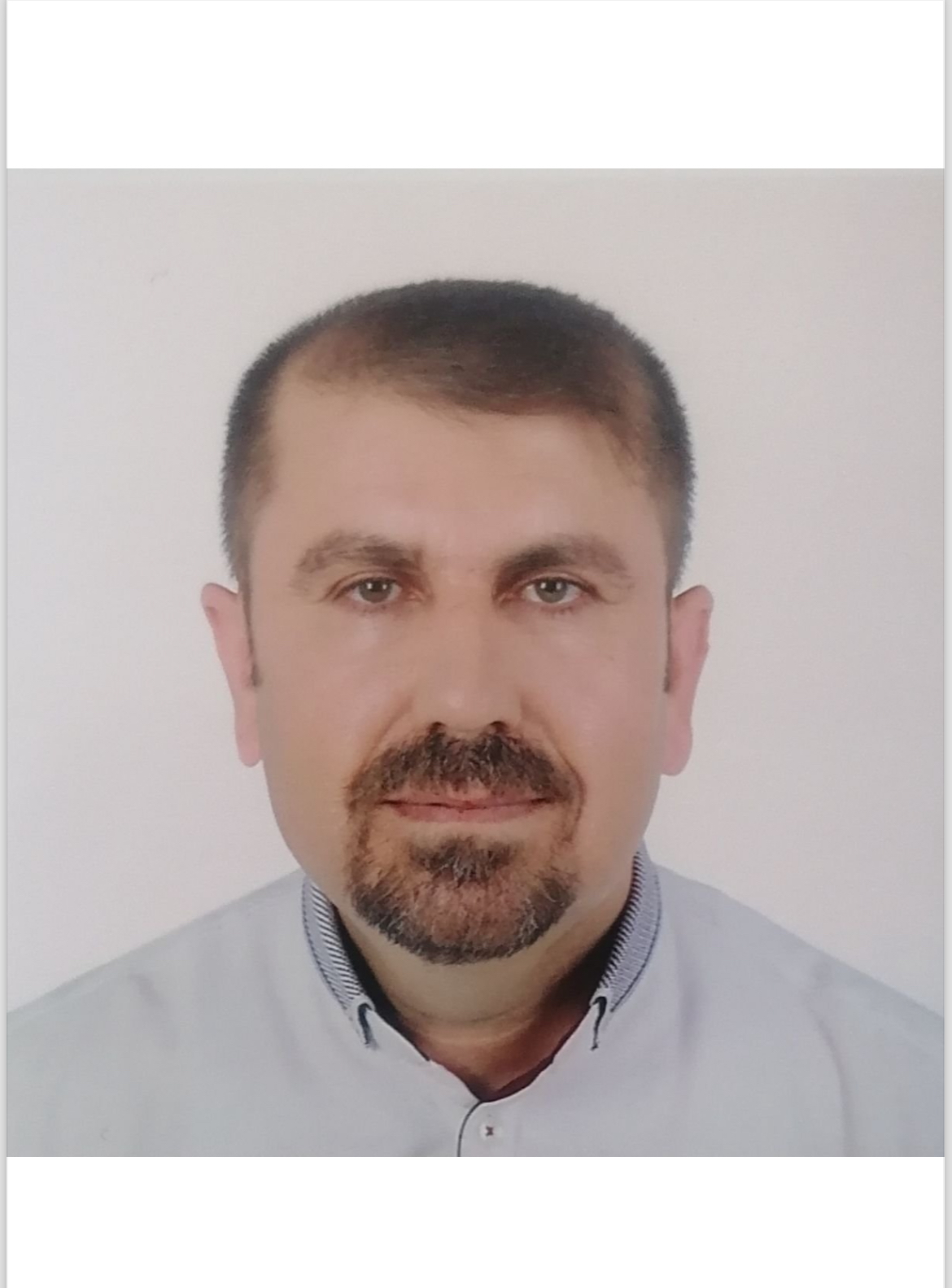Profile of Senk

Senk
Bio
Posts

Biography
2024-11-22 08:42
Senk
Dr. Saman Taher Berzinjy
Personal Information
Full Name: Saman Taher Barzinjy
Email: [email protected]
Current Position:Lecturer
Affiliation/Institution:Koya university-faculty of general medicine
LinkedIn account link: linkedin\ Saman taher
Short Biography
Dr. Saman Taher Barzinjy is a board-certified general and laparoscopic surgery specialist practicing since 2014 at Ashty, Shaqlawa, and Rizgary Teaching Hospitals. He has been a Fellow of the Iraqi Council for Medical Specialization since 2014 and the American College of Surgeons since 2023.
In addition to his clinical work, Dr. Barzinjy has served as a lecturer at Koya University Faculty of General Medicine since 2019 and as a board trainer at the Iraqi Council for Medical Specialization. His professional expertise encompasses gastrointestinal surgery, laparoscopy, breast surgery, thyroid surgery, and proctology.
Dr. Saman has authored three publications, including research and case reports, and has participated as a speaker and attendee in numerous national and international workshops, training courses, and conferences. Beyond medicine, he has written two Kurdish novels and has appeared in over 15 TV and radio interviews to promote health awareness and education
Education and Training:
• Degrees: PhD in General Surgery.
• Specialized Training: Extensive training through courses, conferences, workshops, and seminars in thyroid, breast, GIT, laparoscopy, and proctology.
• Certifications:
• Benign thyroid and breast mass intervention using microwave ablation.
• GIT endoscopy.
• Laparoscopic intervention for biliary tract.
• LASER procedures for benign proctology.
Previous Positions:
• Head of the Surgery Department, Shaqlawa Teaching Hospital (2015).
Clinical Experience:
Specializes in GIT surgery, thyroid and breast conditions, laparoscopy, and proctology.
Research Interests:
Focused on proctology and thyroid interventions.
Key Publications:
1. Daflon 500mg Use for All Hemorrhoidal Grades.
2. Post-Appendectomy Incisional Hernia Incidence in Erbil Province.
3. Ovarian Gangrene Inside Inguinal Hernia Recorded in Minimal Age – Case Report Study.
Collaborations:
Has worked with Hawler Medical University, Koya University, and Kirkuk University on various research projects.
Memberships in Medical Societies:
• Fellow of the American College of Surgeons.
• Fellow of the Iraqi Council for Medical Specialization.
• Member of the Asian Pacific Society for Thyroid Surgery.
• Member of the Kurdistan Association of Surgeons.
Languages Spoken:
Fluent in Kurdish (mother tongue), English, and Arabic.
Personal Interests:
Passionate about writing, having authored two Kurdish novels, and enjoys playing chess.
406
Read
Biography
2024-11-22 07:44
Senk
Prof. Dr. Hamdia Mirkhan Ahmed
Personal Information
Prof. Dr. Hamdia Mirkhan Ahmed
Email:[email protected]
Current Position:Dean, College of Health Sciences
Affiliation/Institution:Hawler Medical University
LinkedIn/ResearchGate Profile/ORCID:
https://www.linkedin.com/in/professor-dr-hamdia-mirkhan-ahmed-6662a438/
https://www.researchgate.net/profile/Hamdia-Ahmed
https://orcid.org/my-orcid?orcid=0000-0002-4952-7108
Short Biography:
Professor Dr. Hamdia Mirkhan Ahmed holds a BSc in Nursing from Arak Branch of Islamic Azad University/Iran (1996), MSc and Ph.D. in Maternity Nursing from Hawler Medical University, Kurdistan Region/Iraq (2006, 2010), and Postgraduate Diplomas in Bioethics and Health Law (UNESCO, 2022) and Organizational Leadership (University of Oxford, 2024). She is currently the Dean of the College of Health Sciences at Hawler Medical University. Prof. Dr. Ahmed has published around 100 research papers on nursing, midwifery, women’s health, and health services in Iraq. She has actively contributed to the development of nursing and midwifery practices in Kurdistan and served in leadership roles, such as Head of the Midwifery Department and the Kurdistan Scientific Nurses Association.
Education and Training:
1. Degrees:
• Secondary School: Etrat School, Iran (1983-1991)
• BSc in Nursing: Arak Azad Islamic University, Iran (1992-1996)
• MSc in Nursing: Hawler Medical University, Iraq (2003-2005)
• PhD in Nursing: Hawler Medical University, Iraq (2006-2009)
• Postgraduate Diploma in Organizational Leadership: University of Oxford, UK (2023)
2. Specialized Medical Training:
• Multiple training in Maternity Nursing, Midwifery, Bioethics, and Leadership.
3. Certifications:
• Postgraduate Diploma in Organizational Leadership, University of Oxford, UK (2023)
• Postgraduate Diploma in Bioethics and Health Law (2022)
Current Role and Responsibilities:
As the Dean of the College of Health Sciences at Hawler Medical University, Prof. Dr. Hamdia Ahmed oversees academic affairs, including teaching and learning processes, while promoting the development of health sciences education in Kurdistan. She also plays a key role in the strategic direction of the college, advancing research, and fostering collaborations to improve nursing and midwifery care.
Previous Positions:
• Head of Nurses, Rezgary Hospital, Erbil City
• Head of the Midwifery Department, College of Nursing, Hawler Medical University
Clinical Experience:
Prof. Dr. Ahmed has extensive clinical experience in maternity hospitals and antenatal care settings, working with expectant mothers and providing direct patient care.
Research and Publications:
1. Research Interests:
• Maternity nursing, midwifery, women’s health, leadership, health systems, and medical education.
2. Key Publications:
Prof. Dr. Ahmed has published over 100 research papers on topics such as maternity nursing, health services, and conflict health, particularly in the context of Iraq.
Google Scholar Profile
https://scholar.google.com/citations?user=sqT1-SAAAAAJ&hl=en
3. Collaborations:
• Collaborated with various universities and international organizations in the Kurdistan region, as well as the Nurse International network.
Awards:
While no specific awards have been mentioned, Prof. Dr. Ahmed’s contributions to nursing and midwifery in the Kurdistan Region have been widely recognized through her leadership roles and research impact.
Membership in Medical Societies:
• Kurdistan Nursing Association
• Health System Global
Public Health or Community Projects:
Prof. Dr. Ahmed has worked extensively on sexual and reproductive health programs supported by NGOs in Erbil city, contributing to improved healthcare access and education.
Mentorship and Teaching:
Prof. Dr. Ahmed is deeply involved in mentorship and teaching, guiding the next generation of healthcare professionals in nursing and midwifery. She has also organized multiple scientific conferences on women’s health and academic development in Kurdistan.
Languages Spoken:
• Kurdish
• English
• Persian
Personal Interests:
Prof. Dr. Ahmed is passionate about continuous learning and personal development, believing that these values are essential for community growth. She enjoys studying a wide range of topics outside her professional field.
Additional Information:
Prof. Dr. Ahmed has made a profound impact in the healthcare field in the Kurdistan region, focusing on improving the standards of nursing and midwifery care and advocating for better healthcare systems. She has been a key figure in shaping healthcare education and advancing research within the region.
377
Read
Oncology
2024-11-22 06:44
Senk
Immunotherapy in Cancer Treatment: Breakthroughs and Challenges
Immunotherapy represents one of the most exciting advancements in cancer treatment, offering new hope for patients with cancers that were once difficult or even impossible to treat. By harnessing the body’s immune system to fight cancer cells, immunotherapy has made a significant impact, leading to improved outcomes in several malignancies.
Breakthroughs in Immunotherapy
Immunotherapy includes several types of treatment, but some of the most well-known and successful are checkpoint inhibitors and CAR-T (chimeric antigen receptor T-cell) therapy.
• Checkpoint inhibitors work by blocking the proteins that prevent immune cells (T-cells) from attacking cancer cells. These inhibitors are especially effective in cancers like melanoma, non-small cell lung cancer (NSCLC), and head and neck cancers. Drugs like pembrolizumab (Keytruda) and nivolumab (Opdivo) have been groundbreaking in treating advanced stages of these cancers. Clinical trials have demonstrated that patients with metastatic melanoma, for example, who once had a very poor prognosis, can achieve long-term remission following treatment with checkpoint inhibitors (Pardoll, 2012).
• CAR-T cell therapy involves modifying a patient’s own T-cells to recognize and attack cancer cells. This approach has shown remarkable success in treating hematologic cancers like acute lymphoblastic leukemia (ALL) and certain types of lymphomas. The therapy has been FDA-approved for several blood cancers, with significant improvements in survival rates, particularly in pediatric populations (Maude et al., 2014).
Challenges and Limitations
Despite the breakthroughs, immunotherapy faces significant challenges.
1. Side Effects: While immunotherapy can be highly effective, it can also cause severe side effects due to the immune system’s attack on healthy tissues. These immune-related adverse events can affect various organs, including the lungs, liver, and kidneys, leading to conditions such as colitis, hepatitis, and pneumonitis (Kaufman et al., 2019). The severity of these side effects can sometimes outweigh the benefits of treatment, requiring careful monitoring and management.
2. High Costs: One of the major hurdles in the widespread adoption of immunotherapy is its high cost. CAR-T therapies, for example, can cost over $373,000 per patient (Lee et al., 2019). While the long-term survival benefits for certain cancers may justify the expense, the high upfront cost remains a barrier for many patients, especially in low-resource settings.
3. Personalized Approaches: Although immunotherapy holds great promise, not all patients respond to treatment. The efficacy of immunotherapy can vary depending on factors like tumor type, genetic mutations, and the immune microenvironment of the tumor. Researchers are working to identify biomarkers that can predict which patients will benefit the most from these treatments, but more work is needed to tailor immunotherapy to individual patients (Turtle et al., 2016).
The Future of Immunotherapy
As research into immunotherapy continues, the potential to expand its use across different cancer types grows. Ongoing studies are investigating combination therapies, where immunotherapy is used alongside traditional treatments like chemotherapy or targeted therapy to enhance efficacy. Additionally, efforts to reduce side effects, improve patient selection, and make therapies more affordable are crucial for making immunotherapy accessible to a larger number of cancer patients.
In conclusion, immunotherapy is transforming the landscape of cancer treatment, offering new hope for many patients. While there are challenges to overcome, its potential as a cornerstone of future cancer therapy is undeniable. As research advances, we can expect further breakthroughs that could lead to more effective, personalized, and affordable treatment options.
Sources
• Pardoll, D. M. (2012). The blockade of immune checkpoints in cancer immunotherapy. Nature Reviews Cancer, 12(4), 252-264.
• Maude, S. L., et al. (2014). Chimeric antigen receptor T cells for sustained remissions in leukemia. New England Journal of Medicine, 371(16), 1507-1517.
• Kaufman, H., et al. (2019). The toxic effects of immunotherapy: Acute and long-term considerations. Journal of Immunotherapy, 42(1), 1-8.
• Lee, S. J., et al. (2019). The cost-effectiveness of CAR-T cell therapies. Health Affairs, 38(3), 471-478.
• Turtle, C. J., et al. (2016). Durable molecular remissions in chronic lymphocytic leukemia treated with chimeric antigen receptor T cells targeting CD19. Science Translational Medicine, 8(355), 355ra116.
223
Read
Healthcare Technology
2024-11-22 06:22
Senk
New Trends in Healthcare Worldwide for 2024
Healthcare is undergoing significant transformation with the advent of new technologies, practices, and policies. Here are the key trends shaping the industry in 2024:
1. AI in Healthcare: Artificial intelligence (AI) is revolutionizing diagnostics, treatment plans, and patient care. AI is improving early disease detection, enhancing administrative efficiency, and supporting clinical decision-making .
2. Data Sharing & Integration: Real-time health data sharing and interoperability are crucial for improving patient outcomes. Initiatives such as the European Health Data Space and the UK’s Federated Data Platform are leading the way in breaking down data silos .
3. Integrated Care Systems: Healthcare systems are adopting integrated care models, where providers work collaboratively across specialties to deliver more patient-centered care and improve health outcomes .
4. Telemedicine & Virtual Care: The growth of telemedicine continues, providing expanded access to remote consultations and services like chronic disease management, especially in underserved regions .
5. Sustainable Healthcare: With a growing emphasis on environmental impact, healthcare organizations are adopting sustainable practices, such as renewable energy, waste reduction, and carbon-neutral technologies .
6. Personalized Medicine: Advances in genomics are pushing personalized medicine forward, allowing for treatments tailored to individual genetic profiles, especially in fields like cancer and rare diseases .
7. Health Equity: Efforts to address healthcare disparities focus on improving accessibility and affordability, particularly for underserved populations .
8. Wearables & Health Monitoring: Wearable technology is empowering individuals to take control of their health by continuously monitoring vital signs and potentially detecting early signs of health issues .
In summary, healthcare in 2024 is increasingly digital, sustainable, and personalized, with technology playing a crucial role in enhancing care and accessibility.
Sources:
245
Read
Health policy
2024-11-22 06:05
Senk
Climate Change and Healthcare: The Role of SDG 13
Climate change is one of the most significant challenges facing global health. The impacts are widespread, affecting air quality, food security, water resources, and the spread of infectious diseases. In this context, the Sustainable Development Goal (SDG) 13: Climate Action plays a crucial role in addressing the health consequences of climate change, as it calls for urgent action to combat climate change and its impacts.
The Connection Between Climate Change and Healthcare
Climate change affects human health in multiple ways, including increased risks of heat-related illnesses, respiratory conditions due to poor air quality, and vector-borne diseases like malaria and dengue fever, which are spread by changing weather patterns. Vulnerable populations, including low-income communities, the elderly, and children, face disproportionate health risks.
Healthcare systems themselves are also affected by climate change. Extreme weather events like floods, hurricanes, and wildfires can disrupt health services, damage infrastructure, and increase the burden of healthcare needs. Therefore, addressing climate change through SDG 13 is vital for building resilient healthcare systems that can cope with these growing challenges.
Global Actions under SDG 13
Several global initiatives are taking place to meet the targets of SDG 13, with a strong focus on protecting health from climate change:
1. Strengthening Health Systems: Countries are integrating climate change considerations into public health policies, focusing on climate-resilient health systems. This includes preparing healthcare infrastructure to withstand extreme weather events, developing early warning systems, and ensuring that health services can continue during emergencies. The World Health Organization (WHO) has emphasized the need for climate adaptation in health planning to protect vulnerable populations (WHO, 2023).
2. Promoting Low-Carbon Healthcare: The healthcare sector itself is a significant emitter of carbon. Efforts are underway to reduce its carbon footprint by transitioning to renewable energy sources in hospitals and clinics, reducing waste, and adopting sustainable practices. The Health Care Without Harm initiative is leading global efforts to promote a green healthcare system (Health Care Without Harm, 2023).
3. Global Frameworks and Partnerships: International agreements like the Paris Agreement aim to limit global temperature rise and ensure that climate action is also beneficial for public health. The Health and Climate Change Coalition works to align the goals of climate action with health improvement efforts, pushing for policies that support both the environment and human well-being (UNFCCC, 2023).
Conclusion
SDG 13, Climate Action, directly influences global health by mitigating the risks of climate change and promoting sustainable, climate-resilient healthcare systems. To safeguard public health, it is essential for countries to take concerted action in reducing emissions, building climate-resilient health infrastructure, and integrating climate change into healthcare policies. With continued global collaboration, the world can make progress in both mitigating climate change and protecting health for future generations.
245
Read
World
2024-11-22 05:46
Senk
Cybersecurity in Digital Health: What You Need to Know
As healthcare continues to adopt more digital tools, from electronic health records to telemedicine, it brings incredible benefits but also major risks to patient privacy and data security. Cyberattacks, especially ransomware, are one of the most serious threats healthcare systems face today. Ransomware works by locking up critical systems until the organization pays a ransom. This not only disrupts care but can also endanger patient safety and cost hospitals millions of dollars in recovery efforts.
Moreover, privacy is a growing concern. As more health data is stored digitally, there’s an increasing risk that it could be accessed by unauthorized individuals or stolen. Hospitals and healthcare providers must follow strict regulations to ensure patient data is protected, but keeping up with constantly changing digital systems and new technologies can be a challenge.
How Healthcare Providers Are Responding
To tackle these challenges, healthcare organizations are turning to advanced technologies like artificial intelligence (AI) and machine learning (ML) to detect and prevent cyber threats before they escalate. These technologies help monitor systems for unusual activity and can stop attacks in their tracks.
In addition to using AI, healthcare providers are focusing on resilience—making sure they can recover quickly if a cyberattack does occur. This means having strong backup systems and disaster recovery plans so that even if an attack succeeds, it doesn’t bring down the whole system.
Looking Ahead
As healthcare becomes more digitized, cybersecurity will remain one of its biggest challenges. Hospitals are using more cloud services and remote care tools, which means more points of entry for cybercriminals. However, by focusing on strong security, using cutting-edge technologies, and ensuring they follow privacy laws, healthcare organizations are better prepared to face these evolving threats.
233
Read
Medicine
2024-11-22 05:18
Senk
Semaglutide and Cardiovascular Health: A New Frontier in Weight Loss Treatment
Recent breakthroughs in medical research have highlighted the dual benefits of certain weight-loss medications, particularly semaglutide, in addressing obesity and its associated cardiovascular risks. Emerging data suggests that semaglutide may not only aid in weight reduction but also significantly reduce the incidence of major adverse cardiac events (MACE) in individuals with cardiovascular disease (CVD), even in the absence of diabetes.
The SELECT Trial: A Landmark Study
The SELECT trial, a large-scale, double-blinded, randomized study, enrolled over 17,600 participants aged 45 and older, all with a BMI of at least 27 kg/m² and established cardiovascular disease. Approximately 25% of participants had heart failure at baseline. Participants were divided to receive either semaglutide 2.4 mg weekly or a placebo over 34 months, with follow-up lasting an average of 39 months.
Key findings include:
• 28% reduction in MACE among participants with heart failure.
• Decreased risk of cardiovascular death by 24% and all-cause mortality by 19%.
• Similar efficacy in heart failure subtypes: 35% reduction in MACE for heart failure with reduced ejection fraction (HFrEF) and 31% for heart failure with preserved ejection fraction (HFpEF).
• Consistent benefits across age, gender, BMI, and heart failure severity.
How Semaglutide Works
Semaglutide is a glucagon-like peptide 1 (GLP-1) receptor agonist. It mimics the GLP-1 hormone, promoting insulin secretion, lowering blood sugar, and influencing brain areas controlling appetite. These mechanisms contribute to weight loss and cardiovascular benefits, likely through reduced inflammation, improved lipid profiles, and lowered blood pressure.
Beyond Weight Loss: Cardiac Benefits
The SELECT trial findings align with other studies emphasizing GLP-1 receptor agonists’ potential to improve cardiovascular health. For example:
• In heart failure patients, semaglutide improved symptoms and exercise capacity.
• Another GLP-1 agonist, tirzepatide, demonstrated reductions in left ventricular mass and epicardial adipose tissue, suggesting structural cardiac improvements.
Semaglutide’s benefits were also evident in patients with a history of coronary artery bypass grafting (CABG). In these individuals, semaglutide reduced MACE more effectively than in non-CABG patients, showcasing its utility in high-risk populations.
Safety and Tolerability
While generally safe, semaglutide may cause gastrointestinal side effects such as nausea, which often resolve with dosage adjustments. Its cardiovascular and metabolic benefits far outweigh these temporary issues, particularly for patients with obesity and established CVD.
Implications for Clinical Practice
These findings redefine semaglutide from a diabetes and weight-loss drug to a transformative therapy for cardiovascular disease prevention. With obesity and heart disease prevalence rising globally, semaglutide offers hope for a broader patient demographic, including those without diabetes.
Future Directions
Ongoing research focuses on the intricate relationship between obesity, inflammation, and cardiovascular health. Investigators aim to refine GLP-1 receptor agonist therapies, optimizing their application in diverse patient populations.
Conclusion
Semaglutide represents a paradigm shift in managing obesity and cardiovascular disease. As clinicians and researchers continue to explore its full potential, this drug underscores the growing recognition of the interplay between metabolic health and heart disease.
Inzucchi, Silvio E., et al.
"Tirzepatide and Cardiac Structure in Heart Failure with Preserved Ejection Fraction: Secondary
Analysis of the SUMMIT Trial." The New England Journal of Medicine, vol. 384, no. 19, 2024, рр.
1883-1891.
232
Read
Leading academic platform that is exclusive
with medical publications and research
Health in Kurdistan, Iraq and the world
About
Sections
Latest News